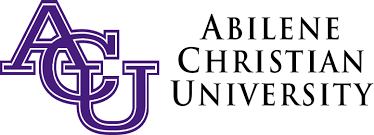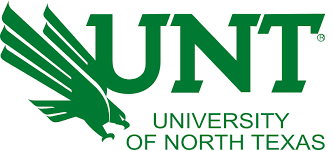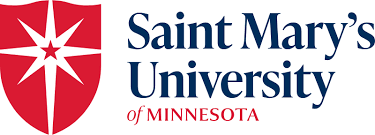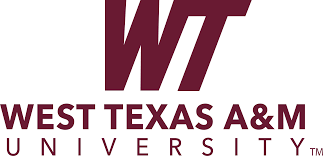Introduction
Texas offers a diverse and dynamic environment for undergraduates pursuing a degree in engineering. With numerous top-ranked institutions like the University of Texas at Austin, Texas A&M University, and Rice University, students benefit from world-class faculty, cutting-edge research facilities, and extensive industry connections.
Texas’ strong economy, particularly in sectors like energy, aerospace, and technology, provides ample internship and employment opportunities for engineering students. Additionally, the state’s large engineering community fosters a collaborative environment and professional networking that can be instrumental for career development.
Texas is known for its diverse range of activities, varying significantly between urban and rural areas. In urban centers like Houston, Dallas, and Austin, students can enjoy vibrant cultural scenes, including music festivals, art galleries, dining, and nightlife. These cities also offer numerous professional networking events and internships. Rural areas, while quieter, provide unique outdoor experiences such as hiking, fishing, and exploring the state’s vast natural landscapes. Students in rural areas often benefit from a close-knit community and a more relaxed lifestyle.
Engineering graduates in Texas enjoy strong job prospects due to the state’s booming industries. Texas is home to numerous Fortune 500 companies and startups, particularly in fields like energy, technology, and biotechnology. The state’s robust job market and the presence of large engineering firms provide a wide array of employment opportunities for graduates.
Bachelor’s in Engineering Programs in Texas
When applying to engineering programs in Texas, students should consider several factors. First, check for ABET accreditation to ensure the program meets industry standards. Look at the faculty’s expertise, research opportunities, and facilities available. Additionally, consider the institution’s connections with local industries and its career services support.
Assess the overall cost, availability of financial aid, and scholarship opportunities. Lastly, evaluate the campus environment and support services, including academic advising and student organizations, to ensure a good fit for your personal and professional goals. Here is a summary of ABET-accredited engineering programs in the state of Texas:
| Institution | Location | Accreditation | Credit Hours | Acceptance Rate |
|---|---|---|---|---|
| Abilene Christian University | Abilene, TX | ABET, SACSCOC | 128 | 66% |
| Angelo State University | San Angelo, TX | ABET, SACSCOC | 127 | 79% |
| Baylor University | Waco, TX | ABET, SACSCOC | 124 | 46% |
| University of Houston | Houston, TX | ABET, SACSCOC | 192 | 66% |
| Lamar University | Beaumont, TX | ABET, SACSCOC | 120 | 84% |
| LeTourneau University | Longview, TX | ABET, SACSCOC | 120 | 49% |
| Midwestern State University | Wichita Falls, TX | ABET, SACSCOC | 132 | 96% |
| University of North Texas | Denton, TX | ABET, SACSCOC | 120 | 79% |
| Prairie View A&M University | Prairie View, TX | ABET, SACSCOC | 120 | 76% |
| Rice University | Houston, TX | ABET, SACSCOC | 127 | 9% |
| Southern Methodist University | Dallas, TX | ABET, SACSCOC | 122 | 52% |
| Texas State University | San Marcos, TX | ABET, SACSCOC | 120 | 88% |
| St. Mary’s University | San Antonio, TX | ABET, SACSCOC | 128 | 86% |
| Tarleton State University | Stephenville, TX | ABET, SACSCOC | 129 | 87% |
| Texas A&M University | College Station, TX | ABET, SACSCOC | 120 | 63% |
| University of Texas – Austin | Austin, TX | ABET, SACSCOC | 126 | 31% |
| University of Texas – San Antonio | San Antonio, TX | ABET, SACSCOC | 120 | 87% |
| Texas Christian University | Fort Worth, TX | ABET, SACSCOC | 129 | 56% |
| Texas Southern University | Houston, TX | ABET, SACSCOC | 120 | 97% |
| Texas Tech University | Lubbock, TX | ABET, SACSCOC | 150 | 67% |
| Trinity University | San Antonio, TX | ABET, SACSCOC | 129 | 31% |
| University of Texas at Arlington | Arllington, TX | ABET | 125 | 81% |
| West Texas A&M University | Canyon, TX | ABET, SACSCOC | 120 | 92% |
ABET-accredited Engineering Programs
BET (Accreditation Board for Engineering and Technology) accreditation is crucial for engineering programs. It ensures that the program meets high educational standards, which is important for students seeking licensure and employment in the engineering field. Employers often prefer or require graduates from ABET-accredited programs because it signifies a rigorous and quality education. For students, attending an ABET-accredited program can also open doors to various professional opportunities and advanced education. A list of ABET-accredited programs can be found here:
Abilene Christian University
- Abilene, TX
Credit Hours: 128
Acceptance Rate: 66%
Tuition: $59,440 (PYR)
Program Overview:
Engineers play a crucial role in enhancing our quality of life by designing and managing products across various fields, from transportation and healthcare to environmental protection and energy. ACU’s rigorous engineering program equips students with the skills needed to excel in these diverse areas, preparing them for careers that contribute to making the world a better place. Starting August 1, prospective students can apply and connect with ACU to gain the information needed to advance their engineering journey and achieve success.
Angelo State University
- San Angelo, TX
Credit Hours: 127
Acceptance Rate: 79%
Resident Tuition: $7,509 (PSR)
Non-Resident Tuition: $14,889 (PSR)
Program Overview:
At ASU, engineers harness science and math to address complex problems, develop practical applications for scientific discoveries, and contribute to the design and construction of critical infrastructure such as machines, bridges, and buildings. With a degree from ASU, you can enter a thriving engineering field with numerous high-paying job opportunities. The university’s engineering program stands out due to its state-of-the-art facilities, including the $4.5 million Hunter Strain Labs, which feature specialized areas like the Hydraulics Lab, Geotechnical Lab, and Engineering Mechanics Lab, providing invaluable hands-on experience essential for your career.
Baylor University
- Waco, TX
Credit Hours: 124
Acceptance Rate: 46%
Tuition: $58,100 (PYR)
Program Overview:
Engineering graduates are integral to the development and implementation of products and systems across a wide range of fields, including telecommunications, computer systems, transportation, power plants, robotics, medical equipment, and manufacturing. Many continue their education in graduate programs related to engineering, law, medicine, or business. Engineering programs typically start with a common core of basic sciences, mathematics, humanities, and social sciences, which lay the technical groundwork for advanced engineering studies.
University of Houston
- Houston, TX
Credit Hours: 192
Acceptance Rate: 66%
Resident Tuition: $6,589 (PSR)
Non-Resident Tuition: $14,666 (PSR)
Program Overview:
The UH Cullen College of Engineering offers eight accredited undergraduate programs—biomedical, chemical, civil, computer, electrical, industrial, mechanical, and petroleum. The Honors Engineering Program provides a rigorous and enriched academic experience, while PROMES supports students with workshops, mentoring, and group activities. Additionally, the college features a Career Center that assists students with professional development, internships, and job placements.
Lamar University
- Beaumont, TX
Credit Hours: 120
Acceptance Rate: 84%
Resident Tuition: $10,586 (PYR)
Non-Resident Tuition: $22,826 (PYR)
Program Overview:
The College of Engineering at Lamar University offers bachelor’s, master’s, and doctoral degrees, as well as certificates across five academic departments. All programs are accredited by the Engineering Accreditation Commission of ABET. The departments include Chemical and Biomolecular Engineering, which focuses on chemistry and materials; Civil and Environmental Engineering, which covers infrastructure and project management; and Electrical and Computer Engineering, which deals with digital and analog systems for various applications.
LeTourneau University
- Longview, TX
Credit Hours: 120
Acceptance Rate: 49%
Tuition: $49,030 (PYR)
Program Overview:
The program is structured to be completed in four years for students who have taken specific high school courses, including four years of English, two years of algebra, one year of geometry, one semester of trigonometry, and one year of science (preferably chemistry or physics). If these courses are not completed before graduation, they can be made up during the freshman year at LETU. Transfer students should note that the curriculum includes sequential courses spanning up to six semesters.
Midwestern State University
- Wichita Falls, TX
Credit Hours: 132
Acceptance Rate: 96%
Resident Tuition: $9,758 (PSR)
Non-Resident Tuition: $10,733 (PSR)
Program Overview:
The McCoy School of Engineering provides some of the most affordable engineering programs in Texas. Its Bachelor of Science in Mechanical Engineering, an ABET-accredited program, offers a broad education for careers or advanced studies in fields like automotive, aerospace, and power generation. The Bachelor of Science in Industrial Technology, following ATMAE guidelines, prepares graduates for roles in industrial systems across manufacturing, oil and gas, and more. Additionally, the school offers minors in Engineering and Petroleum Engineering, designed to complement majors in fields like biology, chemistry, and geosciences, enhancing career prospects in related industries.
University of North Texas
- Denton, TX
Credit Hours: 120
Acceptance Rate: 79%
Resident Tuition: $487 (PCH)
Non-Resident Tuition: $895 (PCH)
Program Overview:
At UNT Engineering, students in any of the 12 undergraduate programs are prepared for exciting engineering careers by applying theoretical knowledge to practical problems. The program emphasizes real-world problem-solving and community impact, culminating in a senior design capstone project where students tackle industry challenges with guidance from faculty and industry experts. This hands-on experience ensures that graduates are well-equipped to understand and excel in their engineering careers.
Prairie View A&M University
- Prairie View, TX
Credit Hours: 120
Acceptance Rate: 76%
Resident Tuition: $11,299 (PYR)
Non-Resident Tuition: $26,874 (PYR)
Program Overview:
The college features 12 research centers that are at the forefront of expanding knowledge across various academic fields, serving as dynamic hubs where academia and culture intersect. Strong corporate partnerships enhance these centers by keeping the curriculum relevant, supporting cutting-edge research, and aligning educational outcomes with corporate needs.
Rice University
- Houston, TX
Credit Hours: 127
Acceptance Rate: 9%
Tuition: $54,630 (PYR)
Program Overview:
Rice Engineering offers a diverse array of 18 Bachelor of Science (BS) and Bachelor of Arts (BA) degree programs, along with eight minors across nine highly ranked engineering departments. The programs span fields such as Bioengineering, Chemical and Biomolecular Engineering, Civil and Environmental Engineering, and Computer Science, among others. Rice Engineering emphasizes hands-on research opportunities, encouraging undergraduates to engage in impactful projects and explore beyond their primary focus.
Southern Methodist University
- Dallas, TX
Credit Hours: 122
Acceptance Rate: 52%
Tuition: $42,155 (TTL)
Program Overview:
At Lyle, students benefit from personalized faculty attention and access to research partnerships and internships with top employers. The Hart Center for Engineering Leadership offers resources for earning leadership certificates, resume building, interview preparation, and salary negotiation. Students can also engage with the Hunt Institute for Engineering & Humanity to make an impact in the Dallas community and join the Darwin Deason Institute for Cyber Security to tackle real-world cyber threats.
Texas State University
- San Marcos, TX
Credit Hours: 120
Acceptance Rate: 88%
Resident Tuition: $12,220 (PYR)
Non-Resident Tuition: $24,520 (PYR)
Program Overview:
The Ingram School of Engineering (ISoE) offers a range of programs including five Bachelor of Science degrees, a Master of Science in Engineering with four concentrations, and a new Ph.D. in Civil Engineering. The Civil Engineering program combines foundational knowledge with modern technology infrastructure applications, while the Electrical Engineering program focuses on analyzing and designing complex electrical systems, with a separately accredited concentration in Computer Engineering.
Saint Mary’s University
- Texas
Credit Hours: 128
Acceptance Rate: 86%
Tuition: $33,890 (PYR)
Program Overview:
The Engineering programs at St. Mary’s University are distinguished by their high academic standards and innovative Senior Design Projects, which combine theoretical learning with practical application using cutting-edge tools. The curriculum emphasizes key areas within engineering disciplines, fostering technical leaders who can positively impact society. Additionally, St. Mary’s integrates liberal arts with professional education to promote holistic student development, preparing graduates for success in both their engineering careers and broader life pursuits.
Tarleton State University
- Stephenville, TX
Credit Hours: 129
Acceptance Rate: 87%
Resident Tuition: $9,819 (PYR)
Non-Resident Tuition: $21,932 (PYR)
Program Overview:
Our bachelor’s degree in mechanical engineering provides rigorous, hands-on training with real-world experiences, faculty and peer mentorship, and access to state-of-the-art facilities. Designed to prepare students for industry, licensure, and further graduate studies, the program emphasizes technical and innovative problem-solving skills, ethical scholarship, and leadership. Small class sizes facilitate peer interaction, undergraduate research, and project work, while the advanced facilities offer resources comparable to top-tier research universities.
Texas A&M University
- College Station, TX
Credit Hours: 120
Acceptance Rate: 63%
Resident Tuition: $13,239 (PYR)
Non-Resident Tuition: $40,134 (PYR)
Program Overview:
Ask our students why they chose engineering at Texas A&M University, and they’ll often say, “I want to make a difference.” This commitment to impact is what distinguishes us. Our graduates go on to launch their own businesses, develop groundbreaking technologies, and lead in their fields. They make a significant impact both within their communities and across the global Aggie network.
University of Texas at Austin
- Austin, TX
Credit Hours: 126
Acceptance Rate: 31%
Resident Tuition: $78,232 (PYR)
Non-Resident Tuition: $90,742 (PYR)
Program Overview:
Engineering is a profoundly impactful field, and the Cockrell School offers 11 diverse undergraduate majors to explore. These include Aerospace Engineering, Biomedical Engineering, Architectural Engineering, Chemical Engineering, Civil Engineering, Computational Engineering, Electrical and Computer Engineering, Environmental Engineering, Geosystems Engineering and Hydrogeology, Mechanical Engineering, and Petroleum Engineering.
University of Texas at Arlington
- Arllington, TX
Credit Hours: 120
Acceptance Rate: 87%
Resident Tuition: $9,234 (PYR)
Non-Resident Tuition: $23,726 (PYR)
Program Overview:
UTSA’s ABET-accredited Mechanical Engineering degree program covers design and manufacturing, mechanics and materials, and thermal and fluid systems. It prepares students for diverse industries such as aerospace, automotive, biomedical, energy (including wind, solar, and petrochemical), heating and cooling systems, machinery, materials, microelectronics, robotics, and structures. Graduates are equipped to innovate and impact various fields, potentially designing advanced engines or discovering new sustainable energy solutions.
Texas Christian University
- Fort Worth, TX
Credit Hours: 129
Acceptance Rate: 56%
Tuition: $61,650 ( PYR)
Program Overview:
Our Bachelor of Science in Engineering offers students a choice between electrical and mechanical emphases, beginning with a core curriculum that provides a solid interdisciplinary foundation. The program includes a shared three-semester design sequence for both emphases. The first three semesters cover the same foundational courses, with students selecting their emphasis before the fourth semester. To complete the degree, students must accumulate a minimum of 129 semester hours, including TCU Core Curriculum requirements, engineering program requirements, and associated coursework.
Texas Southern University
- Houston, TX
Credit Hours: 120
Acceptance Rate: 97%
Resident Tuition: $9,173 (PYR)
Non-Resident Tuition: $21,413 (PYR)
Program Overview:
The Department of Engineering aims to deliver a high-quality, application-oriented curriculum in engineering and engineering technology. This curriculum prepares students for careers as engineers and engineering technologists, equipping them to understand new developments, adapt to changes, pursue professional development, and assume roles in their fields. The department offers courses across several disciplines, including Civil Engineering (CIVE), Electrical and Computer Engineering (ECE), Civil Engineering Technology (CIVT), Computer Engineering Technology (CMET), and Electronics Engineering Technology (ELET).
Texas Tech University
- Lubbock, TX
Credit Hours: 150
Acceptance Rate: 67%
Tuition: 26,204 (PYR)
Program Overview:
The Department of Civil, Environmental, and Construction Engineering aims to gain national and international recognition for producing well-prepared graduates, advancing research, and engaging in public outreach and professional service. Its mission focuses on delivering excellent instruction and design experiences, offering research opportunities that benefit society, preparing graduates with both technical and humanities knowledge, and fostering a spirit of service and leadership to address resource use, environmental protection, and infrastructure development.
Trinity University
- San Antonio, TX
Credit Hours: 129
Acceptance Rate: 31%
Tuition: $53,676 (PYR)
Program Overview:
Trinity University’s B.S. in Engineering Science emphasizes analysis and design while developing communication, interpersonal, and leadership skills, setting it apart from other programs. The curriculum provides a solid foundation in physical sciences, mathematics, and engineering science, with opportunities to specialize in chemical, electrical, or mechanical engineering through electives. The program features an ABET-accredited, top-ranked undergraduate curriculum with a design sequence in all eight semesters and a liberal arts core. About a third of graduates pursue advanced degrees at prestigious institutions.
West Texas A&M University
- Canyon, TX
Credit Hours: 120
Acceptance Rate: 92%
Resident Tuition: $9,204 (PYR)
Non-Resident Tuition: $11,337 (PYR)
Program Overview:
West Texas A&M University’s College of Engineering provides a range of programs, including undergraduate and graduate degrees in mechanical, civil, electrical, and environmental engineering, as well as engineering technology, mathematics, and computer science. The college offers flexible learning options, such as online degrees in electrical engineering, and includes a pre-engineering program for incoming students.
Accelerated Engineering Programs in Texas
Several universities in Texas offer accelerated programs for students pursuing a bachelor’s degree in engineering, allowing them to complete their degrees in a shorter timeframe than traditional programs. These programs are designed to fast-track students through their education, typically by integrating undergraduate and graduate coursework or by offering an intensive, condensed curriculum.
At the University of Texas at Austin, the Integrated BS/MS Program in engineering is a notable example. This program allows students to earn both a bachelor’s and a master’s degree in as few as five years. It is structured to enable students to start graduate-level coursework during their undergraduate studies, which can streamline the transition to advanced education and reduce the total time spent in school.
Texas A&M University offers an Accelerated Bachelor’s to Master’s (ABM) Program in various engineering disciplines. This program is designed for high-achieving undergraduates who wish to complete their bachelor’s degree and a master’s degree in a condensed timeline. Students in the ABM program can begin taking graduate-level courses during their senior year, which count towards both degrees, thus accelerating their path to earning a master’s degree.
Rice University also provides an Accelerated B.S. to M.S. Program in engineering. This program is aimed at students who demonstrate strong academic performance and wish to pursue a graduate degree immediately after completing their undergraduate studies. The program allows students to integrate their undergraduate coursework with graduate-level studies, which can significantly shorten the time required to obtain both degrees.
These accelerated programs are typically formatted to include a combination of undergraduate and graduate courses, with students often taking on a heavier course load to meet the accelerated timeline. They may also involve research projects, internships, or practical experience that count towards both degrees. The accelerated pace requires a high level of commitment and academic excellence, but it offers a streamlined path to advanced qualifications and career advancement.
Affordable Engineering Programs in Texas
The cost of tuition for a bachelor’s degree in engineering in Texas varies by institution and residency status. For in-state students, tuition typically ranges from $10,000 to $15,000 per year at public universities. Out-of-state students can expect to pay between $30,000 and $45,000.
Texas State University offers an affordable engineering education with in-state tuition approximately $12,000 per year. Out-of-state students pay around $24,000 annually. Texas State provides various scholarships and financial aid options, making it an attractive option for those seeking an affordable engineering degree without sacrificing quality.
Tarleton State University is also known for its relatively affordable in-state tuition compared to other top engineering schools. For Texas residents, the tuition for an undergraduate engineering degree is approximately $10,000 per year. This is a significant advantage for students looking to benefit from high-quality education without incurring substantial debt. Out-of-state students face higher tuition, but financial aid and scholarships can help mitigate costs.
Private universities, such as Rice University, generally have higher tuition rates, averaging around $50,000 per year. However, many institutions offer financial aid, scholarships, and work-study opportunities to help offset these costs.
What Types of Careers Can I Pursue With a Bachelor’s Degree in Engineering in Texas?
With a bachelor’s degree in engineering from a Texas institution, you can pursue a wide range of careers in various industries, reflecting the state’s diverse economy and robust job market. Here are some career options:
1. Mechanical Engineer
Mechanical engineers design, develop, and test mechanical systems and devices. In Texas, they often work in industries such as energy, aerospace, and manufacturing. Mechanical engineers might work on projects ranging from automotive design to advanced robotics.
2. Civil Engineer
Civil engineers are involved in the planning, design, and construction of infrastructure projects such as bridges, roads, and buildings. In Texas, they might work on large-scale projects related to urban development, transportation systems, and environmental infrastructure.
3. Electrical Engineer
Electrical engineers focus on designing and developing electrical systems and components. They may work in telecommunications, power generation, or electronics industries. Texas’ growing tech sector provides opportunities in areas like semiconductor manufacturing and renewable energy systems.
4. Chemical Engineer
Chemical engineers apply principles of chemistry and engineering to develop processes for manufacturing chemicals, pharmaceuticals, and other products. In Texas, they often work in the petrochemical industry, which is a significant sector in the state, or in environmental engineering roles.
5. Software Engineer
Software engineers design and develop software applications and systems. Texas’ thriving tech industry, especially in cities like Austin and Dallas, offers numerous opportunities in software development, including roles in tech startups and large tech corporations.
6. Environmental Engineer
Environmental engineers focus on developing solutions to environmental problems, such as water and air pollution. In Texas, they might work on projects related to environmental protection, waste management, and sustainability efforts in both urban and rural settings.
7. Aerospace Engineer
Aerospace engineers design and develop aircraft and spacecraft. Texas is home to several aerospace companies and research institutions, providing opportunities in aerospace design, testing, and manufacturing.
8. Industrial Engineer
Industrial engineers optimize complex systems and processes to improve efficiency and productivity. They may work in manufacturing, logistics, or healthcare settings, focusing on streamlining operations and reducing costs.
9. Structural Engineer
Structural engineers specialize in designing and analyzing structures to ensure they can withstand environmental forces and loads. In Texas, they often work on large construction projects, including commercial buildings and infrastructure.
10. Petroleum Engineer
Petroleum engineers work in the oil and gas industry, focusing on extracting and processing fossil fuels. Texas, with its significant oil and gas resources, offers many opportunities in exploration, drilling, and production engineering.
These careers leverage the technical skills and problem-solving abilities gained through an engineering degree and can be pursued across various sectors in Texas, offering diverse and rewarding professional paths.






















